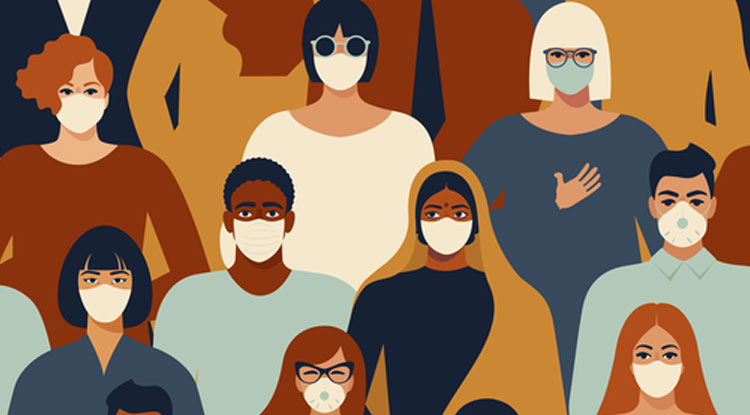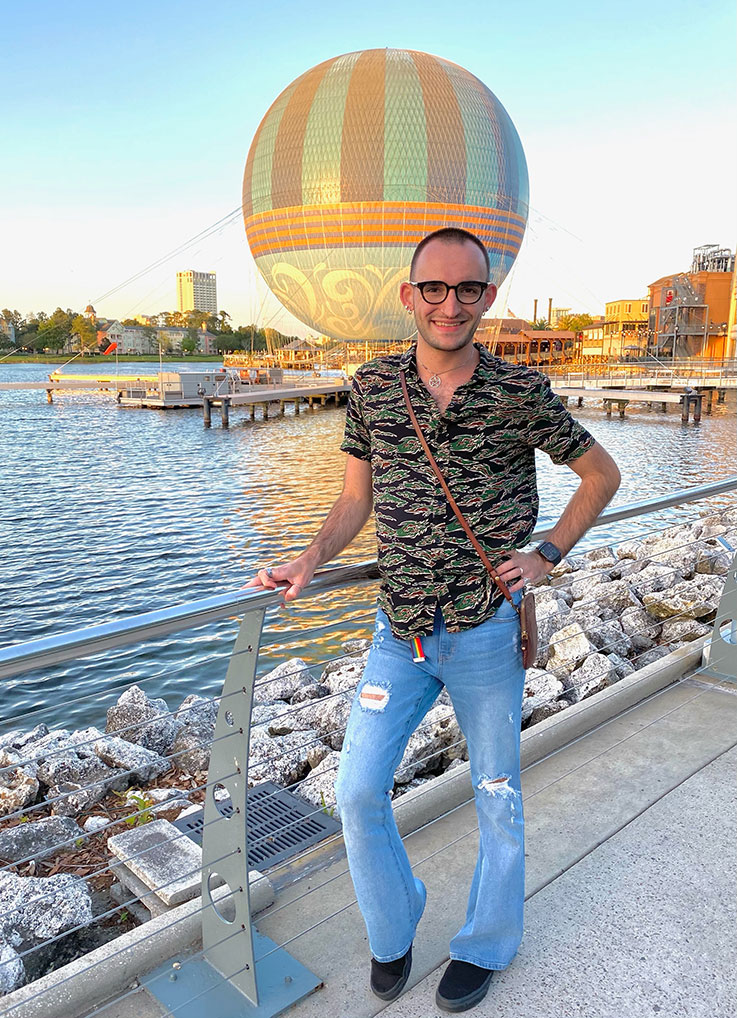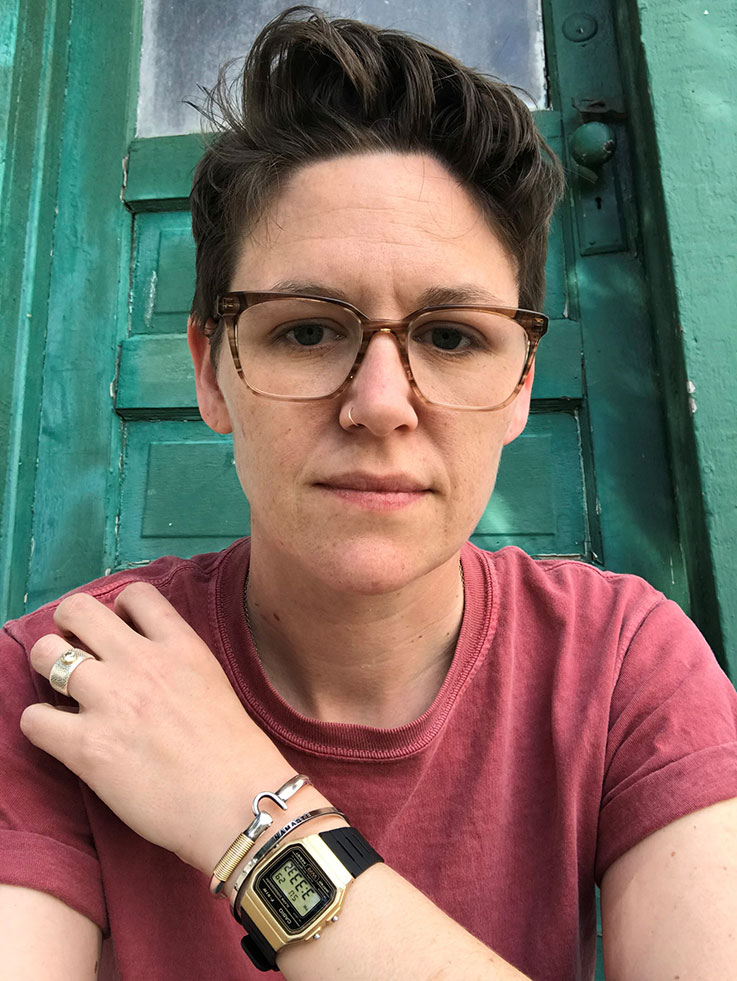
Intersectionality works.
Just ask Melinda Quinn Brennan.
Brennan will shine a spotlight on intersectionality at an IUP virtual mini-conference, “Intersectionality Works: Allyship, Coalition, Solidarity,” on Friday, April 9. She hopes to inspire people to work together as community members—across differences—with a shared purpose.
Dismantling the Walls That Separate Us

Graduate student Austin Marsico is one of the mini-conference organizers. Marsico (who uses they/them pronouns) explained intersectionality from their personal perspective.
“Intersectionality is the crossroads that a community has. At these crossroads, the culture and society learn from other individuals' experiences,” they said. “It is not just about the minorities and their attributes, which need to be recognized no matter what. It is also about the White, cis, straight males' experience. They can also be intersectional and have something to bring to the table.”
Marsico has degrees from IUP in religious studies and English and is working toward a master of education degree in school counseling. “As a gay, non-binary, queer, disabled individual with bipolar disorder,” they said, “I can bring help, support, knowledge, acceptance, and diversity to the table of my community and society, helping teach the community and society about inclusion and to fight discrimination against all minority groups.”
Marsico said it's important to “work to help dismantle the walls that separate us all on race, gender, class, color, sexual orientation, religion, and culture. Everyone's experiences matter. We should all be able to learn from one another, while appreciating what everyone has to offer. That is what intersectionality means to me.”
Intersectionality: Rooted in the Way a Person Experiences the World

As graduate student Leigh Hendrix (who uses they/them pronouns) looks toward Friday's mini-conference, the origin of the intersectionality concept comes to their mind.
“When I encounter the term intersectionality, my first thought is of Kimberlé Crenshaw and the roots of the concept as a way to discuss the impact of different kinds of oppression on Black women, particularly in regard to the law,” said Hendrix, who is a pursuing a master's degree in clinical mental health counseling.
“Intersectionality is not simply an additive concept of oppression—one may be Black, a woman, and trans or one may be White and trans, and then we compare the two to say who is navigating more oppression,” they said. “It is not a description of identities. It is a concept rooted in the ways an individual experiences the world and experiences harm that are not always discrete and cannot be easily taken apart.”
Thinking about the recent targeted murders of Asian women by a young White man in Atlanta, Hendrix said the murders should not be labeled as racist or sexist or based on any other single factor.
“It was connected to all of these things, and addressing the systems that cause those harms requires an intersectional lens,” they said. “Otherwise, we will erase and misunderstand people's experience and likely reduce our ability to respond well and create change.”
Participate in the Mini-Conference
The virtual mini-conference will begin at 10:00 a.m. with a keynote address by Brennan, followed by a workshop presentation at 11:00 a.m. and a community conversation at noon.
All segments of the event will be held via Zoom. Participants can join in at any time for the sessions. The conference is free and open to all IUP community members.
Brennan is the assistant chair of Women's and Gender Studies at the University of Wisconsin-Milwaukee. Her transdisciplinary work has been described as operating “at the intersection of gender, race, and sexuality—studying the politics of inclusion and rejection, as well as hate speech and violence.”
For more information about the event, contact Austin Marsico at bhlw@iup.edu, Tedd Cogar at lgbtqia-support@iup.edu, or Jonathan Warnock at jwarnock@iup.edu.
This event is cohosted by the Social Equity and Title IX office, the LGBTQIA+ Commission, LGBTQIA Support, and the Center for Multicultural Student Leadership and Engagement.
Keynote, Workshop, and Conversation—Join at Any Time
10:00 a.m., Keynote: Intersectionality is a critical lens, a mode of thinking that requires action and encourages supportive work across differences. This talk will inspire a broad conversation about working together as a community with a shared purpose.
11:00 a.m., Workshop: Talk about the difficulties of relating to others across differences, and learn what to watch for, such as insider/outside tension and fatigue. This workshop concludes with an "ask me anything" question-and-answer session with speaker Melinda Quinn Brennan.
Noon, Conversation: Take part in a discussion with students, faculty, and staff about how intersectional identities apply to our lives and work.